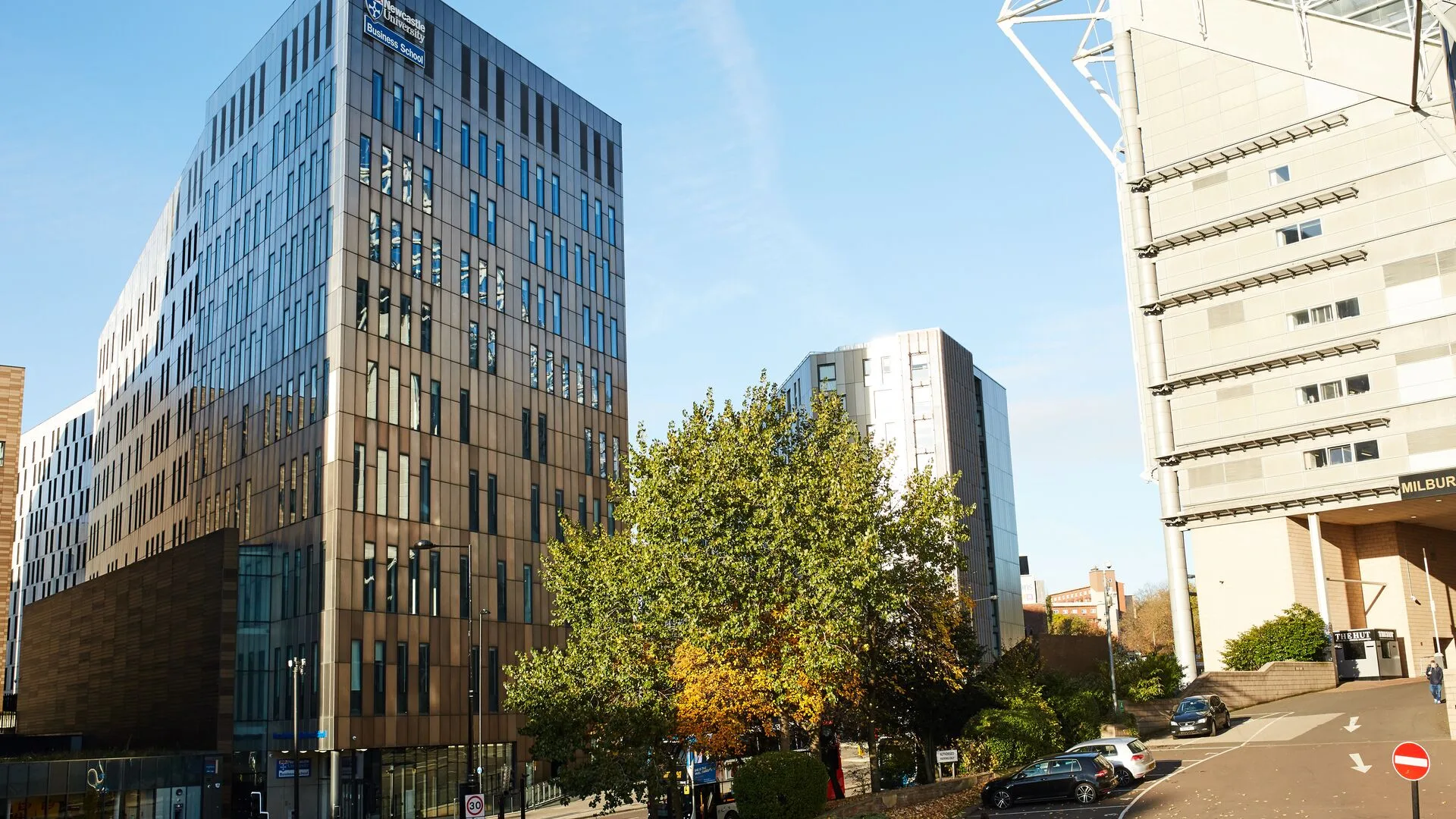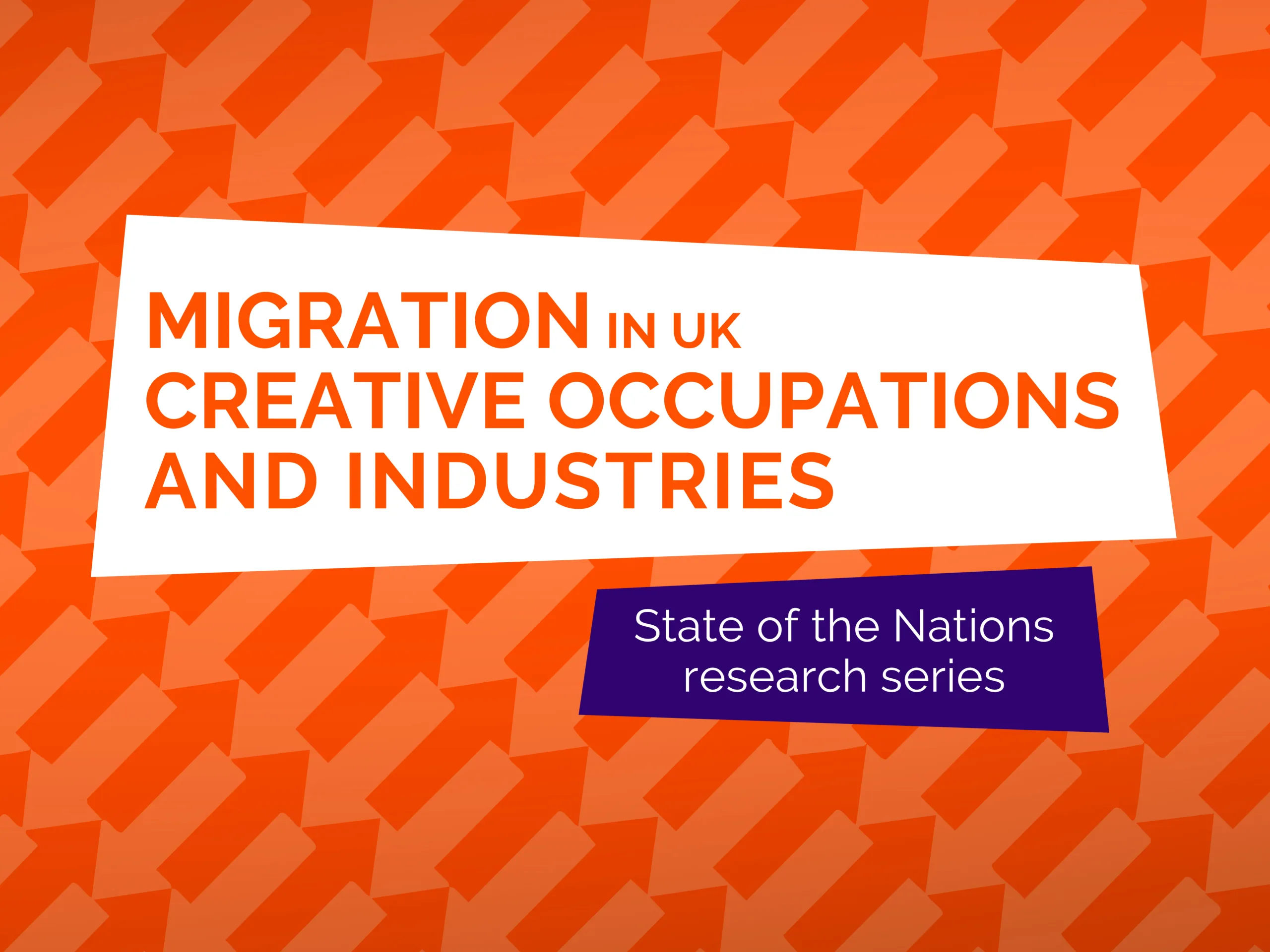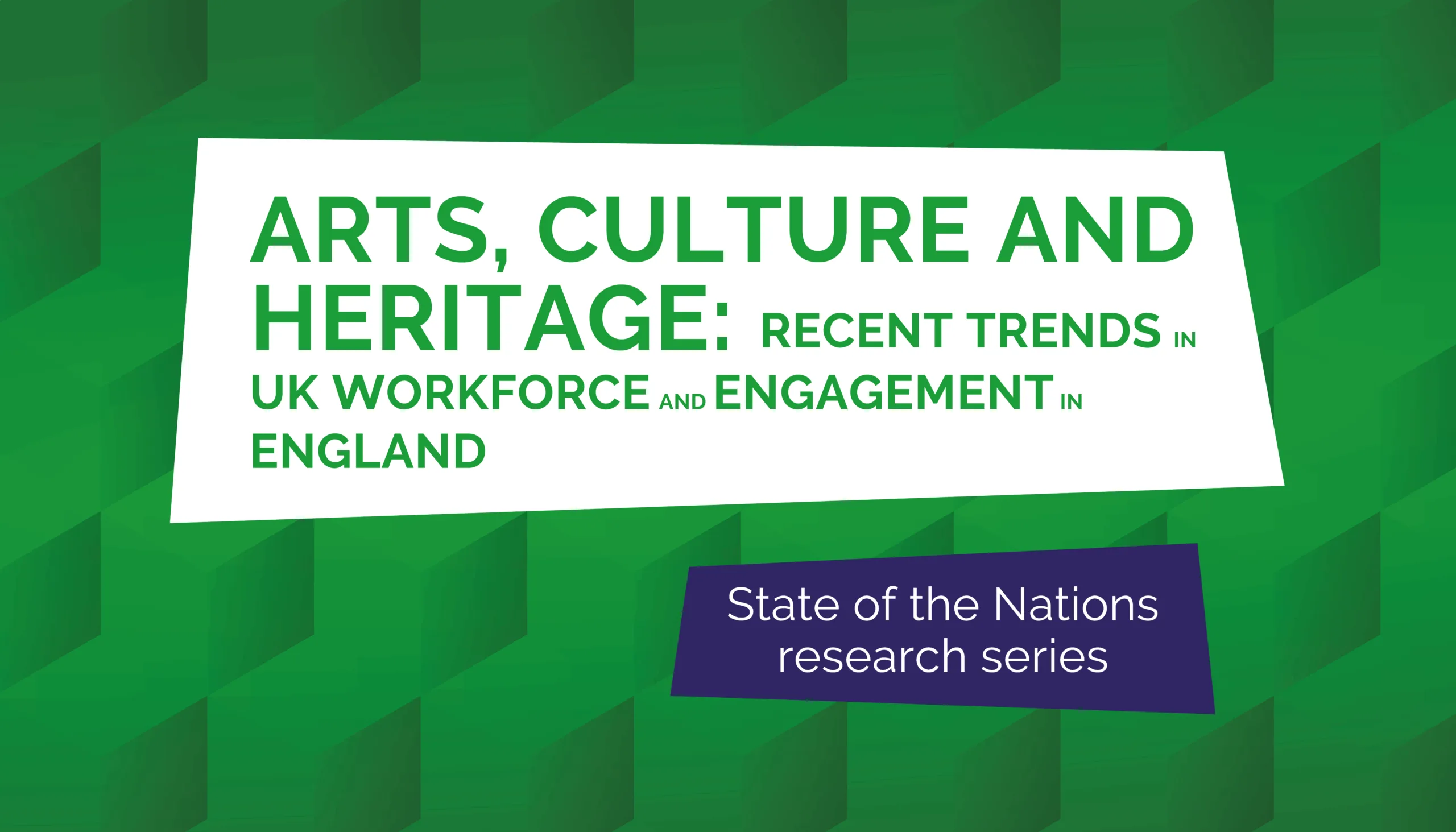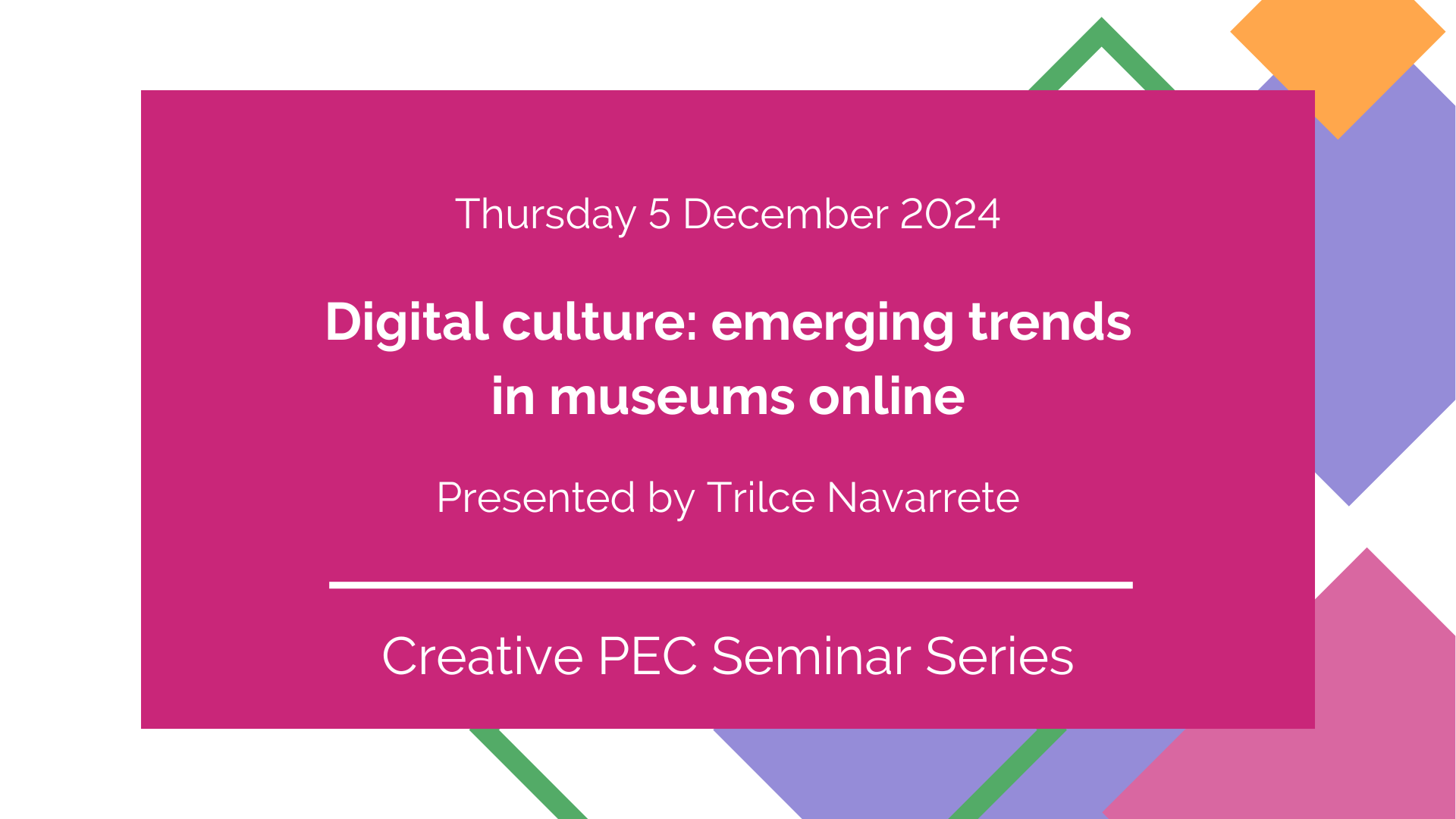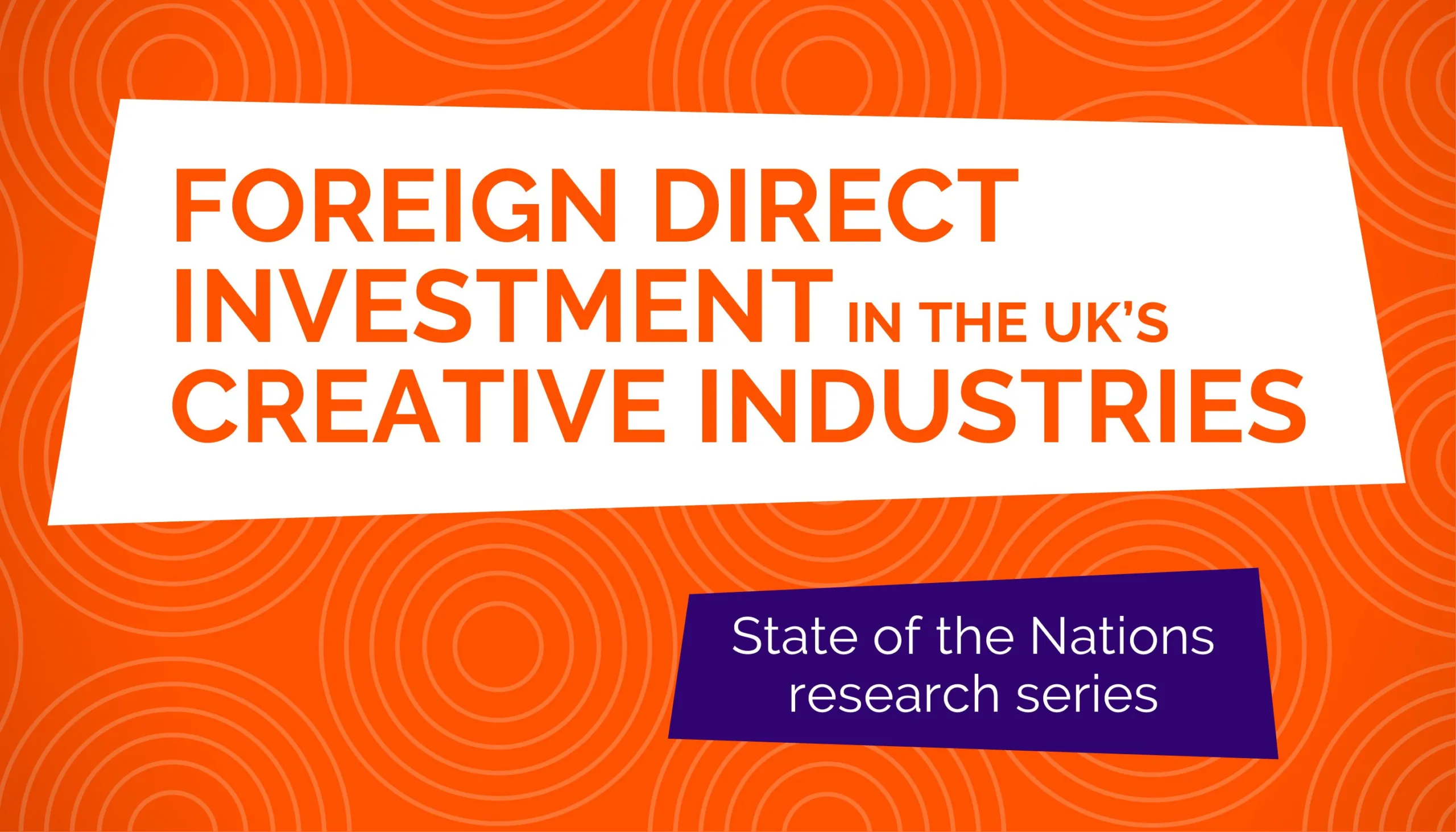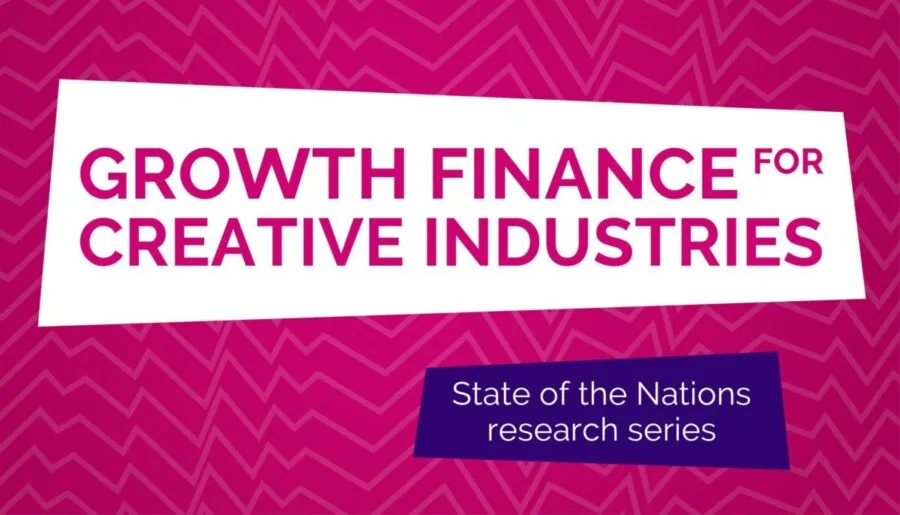Full programme
- 14:00-14:05: Welcome from the organisers
Dr Roberta Comunian (KCL) and Hasan Bakhshi (PEC Director)
- 14:05-14:30: Keynote: measuring gender imbalances in the creative industries
Dr Cath Sleeman (PEC researcher from Nesta)
This keynote presentation will discuss how big data can help to shine new light on gender representation in the creative industries. Sleeman will speak about two studies: i) using millions of film credits to reveal the gender imbalances in the film industry, and ii) examining the media’s reporting of women in the creative industries using more than half a million newspaper articles. Sleeman will also speak about the limitations of using these datasets and the evidence gaps that remain.
- 14:30-14:50: “You’ve got a baby, and you can’t do this”: parenting, sexism, and creative careers
Dr Orian Brook (PEC researcher from University of Edinburgh)
Precarity is a key feature of creative work, which is clustered in London, and unsociable hours are the norm. In this presentation, Brook will explore the creative careers of mothers. Women and men leave creative work at different rates at critical points for family formation. The disappearance of women from senior posts, the loss of access to networks if they leave London, and the personal responsibility of women for structural problems were commonly encountered. The expectation that a creative career is an all-consuming commitment makes it almost impossible to progress for those without the resources to make their responsibilities invisible.
- 14:50-15:10: Gender, sexuality and care in the screen sector
Dr Tamsyn Dent (King’s College London)
This paper summarises findings from a survey undertaken in collaboration with the grassroots campaigning organisation Raising Films on the impact of combining screen work with care. The definition of a carer was taken from the national charity Carers UK, and focused on those who have responsibilities for another person be it parent, relative, partner, sibling, friend or child who is dependent on that support. The presentation will share findings that expose the relationship between gender, care, sexuality and screen labour as non-binary, illustrating the impact of caring responsibilities on male participants employed within film and television labour markets. In addition, the presentation reflects on the relationship with the commissioning organisation, Raising Films, and the contribution of grassroots organisations in developing a more nuanced understanding of labour market processes within the Creative Economy.
- 15:10-15:30: Obstacles for female artists in Britain
Dr Kate McMillan (King’s College London)
This short talk will briefly present two recent research projects – the 2019 report on the ‘representation of Female Artists in Britain commissioned by the Freelands Foundation’ and a quantitative analysis of more than 100 commercial galleries in London between 2016 and 2019 and the representation of female artists.
Past Events
Creative Industries Policy and Evidence Centre Research Symposium 2026
28 – 29 April 2026, Newcastle University Business School
Mapping Qualifications in the Creative Economy
9 October 2025: Join us for an update to the Creative Trident model of creative employment that inco…
State of the Nations Report Launch: Migration in UK Creative Occupations and Industries
Tuesday 10 June 2025 | 12-1pm (GMT) | Online Event
State of the Nations Report Launch: Arts, Culture and Heritage: Recent Trends in UK Workforce and Engagement in England
Report launch for our State of the Nations series On Wednesday 7 May 2025 we launched our new State …
Seminar Series: Digital Culture: Emerging trends in museums online
Thursday 5th December 2024 | 15:00 GMT Hear from Professor Trilce Navarrete who will discuss her on…
Seminar Series: The UGC Revolution: Transforming China’s Cultural and Creative Industries
Friday 6 December 2024 | 14:00 GMT Anthony Fung's presentation explores the concept of "digital lab…
State of the Nations Report launch: Foreign Direct Investment in the UK’s Creative Industries
Wednesday 20 November 2024 | 12noon | Online via Zoom. Join us for the launch of the next report in…
State of the Nations Report launch: Growth Finance for Creative Industries
Wednesday 16th October 2024 | 12noon | Online via Zoom. Join us for the launch of our fifth report …

